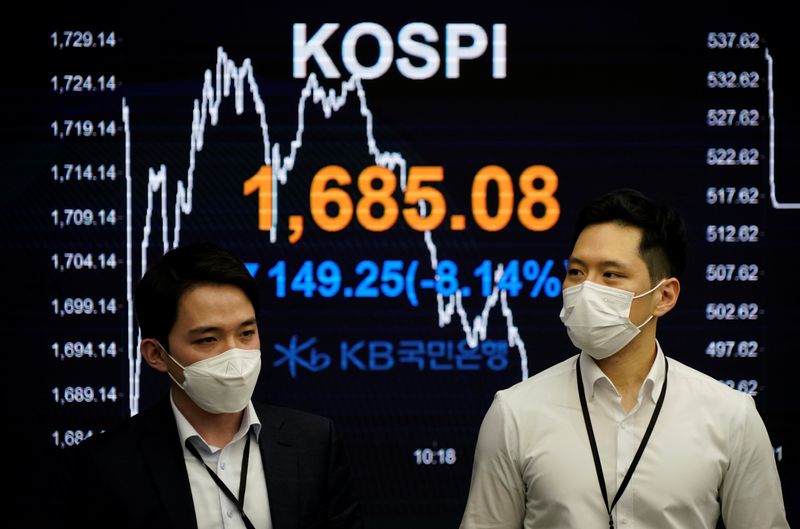This post was originally published on this site

Investing.com– Asian stocks fell on Monday, extending losses from last week as concerns over rising interest rates and a potential recession in 2023 weighed on sentiment, with uncertainty over China’s economic reopening also denting regional markets.
Japan’s Nikkei 225 was among the worst performers for the day, losing 1.1% amid renewed speculation that the Bank of Japan (BoJ) could tighten its ultra-loose monetary policy.
Media reports said that the Japanese government is considering the revision of the BoJ’s inflation target, a move that could eventually see the central bank raise rates from record-low levels.
Focus is also on the BoJ’s meeting on Tuesday, where it is expected to maintain its benchmark rate. But markets will be watching for any potential changes to the bank’s tone.
China’s blue-chip Shanghai Shenzhen CSI 300 index fell 1.3%, while the Shanghai Composite index fell 1.6% as rising COVID-19 infections in the country offset commitments from the government to shore up economic growth.
The country is facing an unprecedented spike in COVID-19 cases after it scaled back several lockdown measures earlier this month, which markets fear could delay a broader reopening in the country.
A survey also showed that Chinese business confidence was at its lowest level in nearly a decade, as the COVID-19 pandemic highlighted deepening cracks in the country’s economy.
Hong Kong’s Hang Seng index and the Taiwan Weighted index, which are both heavily exposed to Chinese markets, sank 0.6% each.
Broader Asian stocks fell after hawkish signals from several major central banks last week drove up concerns that rising interest rates and high inflation could trigger a recession in 2023.
Hawkish signals from the Federal Reserve and the European Central Bank rattled markets which are already reeling from a sharp increase in borrowing costs this year. While both central banks signaled rates will rise at a slower pace, they are likely to peak at higher-than-expected levels.
South Korea’s KOSPI index fell slightly lesser than its peers, losing about 0.4% after the government signaled that an economic slump in the country will likely bottom out by mid-2023. This, coupled with an eventual recovery in China, could see the east Asian economy recover sharply by 2024.
Indian stocks bucked the trend, as investors bought into markets reeling from two consecutive weeks of losses. The Nifty 50 and BSE Sensex 30 indexes added about 0.5% each.
A strong economic growth outlook for India buoyed the country’s stock market this year, with two benchmark indexes hitting record highs in November.

